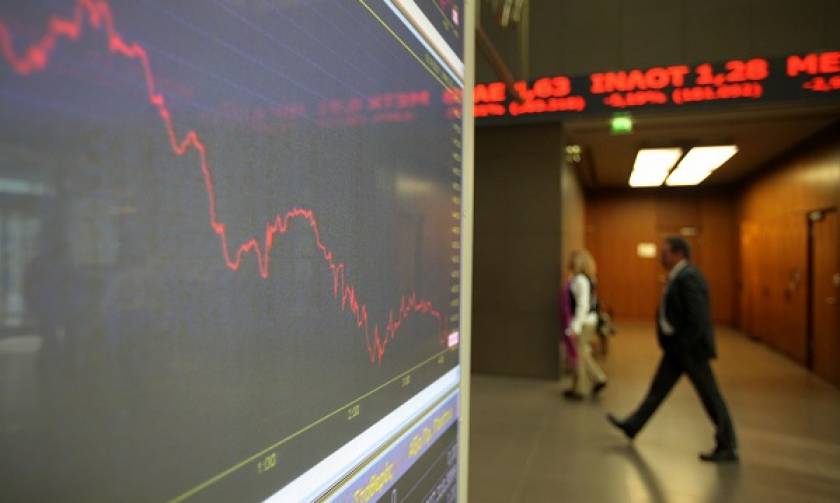Greek economy to grow by 0.5 pct this year, European Commission says

The recovery fails to accelerate amid high political uncertainty, the European Commission titled its spring forecast report for the Greek economy.The report released here on Tuesday said that forecast figures for Greece were subject to a high degree of uncertainty and take into account developments up until the cut-off date of 21 April.
In 2014, private consumption and net exports drove economic activity, prompting a long-awaited return to growth, which measured 0.8% in terms of real GDP. Backed by falling prices and the adjustment of the labour market, private consumption increased for the first time after five years of continuous contraction. Exports of services improved strongly thanks to the tourism and shipping sectors, goods exports also improved, although stronger domestic demand meant that imports also rose. Investment increased for the first time since 2008, mainly due to the increase in equipment investment.
The positive momentum has, however, been hurt by uncertainty since the announcement of snap elections in December. The current lack of clarity on the policy stance of the government vis-à-vis the country’s policy commitments in the context of the EU/IMF support arrangements worsens uncertainty further. Greece’s economic sentiment indicator (ESI) deteriorated in March due to falling confidence in all business sectors, although consumer confidence remained at relatively high levels. Greece’s purchasing managers index (PMI), recorded a further deterioration in business conditions for manufacturing in March, suggesting that the sector is still in depression, with new export orders and output falling.
Conditional on agreement with the EU/IMF by June and assuming that business confidence returns along with the liquidity of the government and banking sector, the economy is now forecast to grow by around ½% in 2015, considerably lower than in the previous forecast. Private consumption should benefit slightly from the drop in oil prices and the return of ‘under-the-mattress’ deposits to the economy. Export growth is expected to continue in 2015 as tourism and shipping should benefit from the weaker euro.
Uncertainty, however, is taking a heavy toll on investment, which is also suffering from limited credit supply from the financial sector and a build-up of arrears from the public sector. In 2016, real GDP growth is projected to strengthen to 2.9%, as investment rebounds on the back of structural reforms.
Greece’s current account balance is expected to improve further in the forecast horizon supported by past and ongoing structural and institutional reforms, as well as by the weaker euro. The current account deficit is forecast to shrink to 1.6% of GDP in 2015 and to 1.3% in 2016.
The unemployment rate fell to 26.5% in 2014 reflecting the creation of about 100 000 new jobs. In 2015, the unemployment rate is projected to fall moderately to 25.6%, as the recovery remains muted. When growth picks up in 2016, the unemployment rate should fall further to 23.2%. Prices fell by 1.4% in 2014 and inflation is expected to remain below zero this year, due to weak domestic demand, before turning positive in 2016 as the recovery gains pace.
The rise in uncertainty since the autumn of 2014 and the slowdown in the recovery have had a significant impact on Greece’s public finances, In 2014, the real GDP of Greece grew for the first time since 2007, expanding by 0.8%. The conditions to support growth are in place but uncertainty and tighter financing conditions are holding back the recovery and weighing on public finances. The poor revenue collection around the turn of the year resulted in a significantly weaker-than expected fiscal outcome for 2014. The general government balance at -3.5% of GDP in 2014, is substantially worse than expected in the winter forecast. The headline balance in 2014 is, nevertheless, much better than in previous years, as it is no longer affected by the large one-off effects of bank recapitalisations recorded in 2012 and especially 2013.
Given the existing uncertainty about the timely implementation of necessary reforms and budget commitments, projections for 2015 and 2016 are based on a no-policy-change assumption. Accordingly, the forecasts for the headline balance in 2015 and 2016 have been lowered to -2.1% of GDP and -2.2% respectively. This reflects weaker than-expected revenues due to lower growth prospects offsetting a rebound in collection after the first quarter of the year. The projection assumes that profits from Eurosystem securities transactions (the SMP and ANFA programmes) are transferred, which in turn presumes that new fiscal measures will be taken. Expenditure ceilings were binding in 2014 and are expected to remain so in the future as well.
The government’s debt-to-GDP ratio is expected to peak in 2015 before declining in 2016. Favourable interest rates, better cash management together with the back-loaded payment schedule for loans from the European Financial Stability Facility (EFSF) will help to keep interest expenditure low for a long period, despite the high stock of debt.













